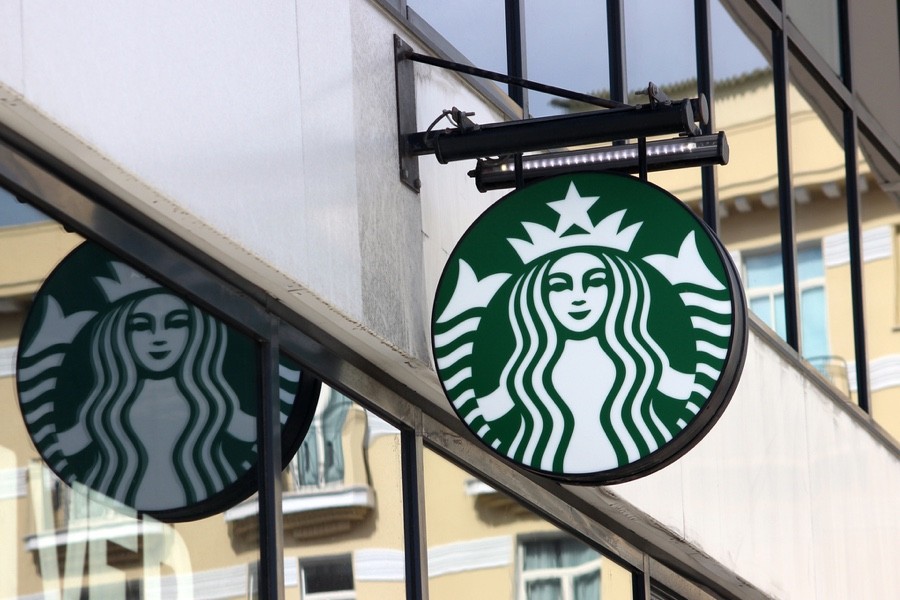Should Starbucks Fire the Manager Who Called the Cops on Two Black Patrons?
Activists say the company’s apology is far from enough, and calls for the employee's termination have now surfaced. A Rutgers employment law professor weighs in on what Starbucks should do next.

Starbucks. iStock | bensib
Starbucks CEO Kevin Johnson will be in Philadelphia on Monday to meet with Mayor Kenney and Police Commissioner Richard Ross over an incident that left two black men in handcuffs after sitting in the Starbucks at 18th and Spruce streets. According to a witness, a Starbucks employee called the police after the men were asked to leave the store and refused. Johnson has since issued an apology, but leaders like Black Lives Matter activist Asa Khalif have called the apology “lukewarm” and “just about saving face.”
Now calls for the firing of the Starbucks employee who called the cops, the store manager, have surfaced. We’ve seen this before. Banana Republic decided to fire a manager who told an employee that her braids were too “urban.” Berkeley, Calif., hot dog restaurant Top Dog fired an employee who took place in last year’s white nationalist demonstration in Charlottesville. What should Starbucks do? Rutgers employment law professor Stacy Hawkins weighs in, arguing that every incident shouldn’t be grounds for immediate termination.
Do you think Starbucks should fire the manager who called the police?
I think it is dangerous for both employers and the public to think about every employee mistake as grounds for termination. People make mistakes; every mistake should not be a terminable offense.

Rutgers Camden, Professor Stacy Hawkins | Photo by Bob Laramie
But aren’t some mistakes more problematic than others? It appears that this employee’s actions resulted in the arrest of two black men who were simply sitting inside the Starbucks.
It seems reasonably clear from the video and other public reports about this incident, as well as based on Starbucks’ own apology, that this manager exercised an error in judgment in calling the police on these gentlemen. But it also seems that, technically, this manager violated no company policy or rule.
Instead, according to Starbucks, figuring out how to deal with people who aren’t customers is left to the discretion of the local managers. Most eateries have policies that limit the use of restrooms to “paying customers,” and almost all prohibit loitering and/or trespassing. These are common and sensible policies for businesses that want to cultivate an environment conducive to their customers.
However, Starbucks also seems to want to hold itself out as a community hub and a place where people can socialize. So what makes this policy problematic is that the decision about whom to keep or kick out of the restaurant is left up to the managers.
What do you think should be grounds for suspension or termination in these kinds of situations?
If there was some indication that this manager harbored racist sentiments or that she acted out of racial animus or bigotry, such as using a racial epithet, that would be a different circumstance, and might well warrant dismissal.
Employers can be liable under civil rights laws for discrimination and harassment by their employees, whether directed at co-workers or customers. So employers should be concerned when their employees engage in the kind of conduct that might result in their liability to third parties.
What steps should Starbucks take next?
The discrimination displayed contradicts Starbucks’ stated commitment to “diversity and inclusion.” If Starbucks takes its commitment to “diversity and inclusion” seriously, it should take this opportunity to better train this manager, as well as its other employees, on how to operate under these types of circumstances without acting on implicit biases. Providing diversity and inclusion or implicit bias training would be appropriate. Notably, if this manager or any other employee fails to exhibit more appropriate conduct in the future under these or similar circumstances, that might be grounds for a heightened response. And if the employee doesn’t correct this behavior, that may be ground for discipline and/or termination in the future.
This incident may even get Starbucks to reconsider its policy of allowing managers to exercise complete subjective discretion in these circumstances.
What lessons should other employers take from this situation and others like it?
The most important lesson for employers to be aware of is that by giving employees subjective discretion, they are providing opportunities for individuals to act on their implicit biases. Provide employees with clear guidance. Sometimes, however, discretion is necessary. In these circumstances, it is important for employers to give their employees the training necessary to exercise this discretion in a manner that prevents discrimination.


